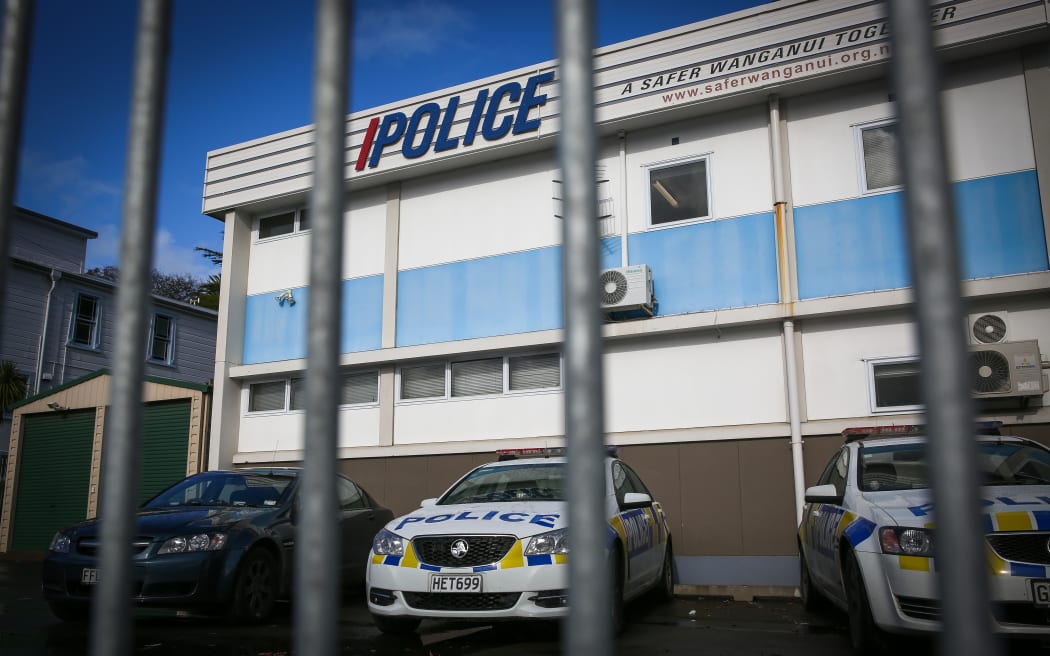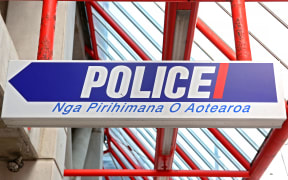Police are improving the safety of their stations across the country, after a spate of verbal and physical attacks on staff, they say.

Whanganui police station Photo: RNZ / Alexander Robertson
Police have announced plans to make the front counters of more than 300 stations safer for staff and visitors.
They say they are also looking at making changes to 105 stations identified as most at risk, mainly in smaller towns or suburbs.
Assistant commissioner of police districts Allan Boreham said that included potentially issuing staff with safety alarms, adding more security cameras, and limiting public access to times when constabulary or sworn staff were on site.
"We don't want to make our premises less welcoming to members of our communities but we must do all we can to ensure our staff and members of the public are safe," he said.
The plans followed a review of station security measures in September, which was prompted when a man fired shots inside the Palmerston North police station in August last year. and after threats were made against staff in other districts.
While physical attacks on staff at stations were rare, they did happen, Mr Boreham said.
Just last week, a police contractor was assaulted by a person in the reception area of a station in Counties Manukau.
"That's quite a rare, but a very serious, incident. More commonly what we have is a range of people that might come in and act in a threatening way, threaten staff, or act in a disorderly way, so it's important that the stations are designed for that as well.
"And there's enough of those incidents that gave us some concern last year that we did this review and looked at what improvements we could make."
At the time of the Palmerston North incident, the Police Association warned that there needed to be a balance between public access to police stations and ensuring the safety of staff.
Association president Greg O'Connor said such incidents showed how vulnerable anyone in a reception area was when confronted by a motivated person.
Mr Boreham said that was why they were taking an extra cautious approach, particularly with volunteers.
"We work with volunteers in terms of our neighbourhood support groups, our community patrols, and sometimes they will just work with us and do a range of things around the stations, and sometimes that might include working at the front counter.
"[There's] no difficulty with them continuing to do that if we have constabulary or authorised officers present, who are trained and have equipment to make sure people are safe, but if they haven't that's probably one of the things the district commanders would say is a role that we can't have them doing now, until we can be absolutely sure about these safety requirements."
Some kiosks which were only manned by volunteers would be closed until the completion of a more comprehensive audit, he said.
"We are not suspending our volunteer network but we need to ensure they are performing roles in a safe environment."


